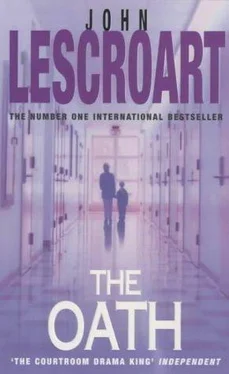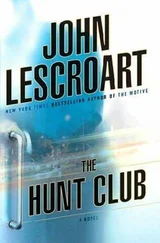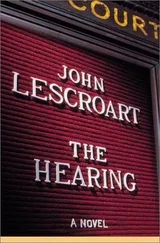"But the gun was in her right hand?"
"Near it," Faro corrected him. "But yeah. Anyway, the GSR"-gunshot residue-"results might give us a better hint if she in fact fired the thing, but they won't be in for a few more days."
"Okay, Len. Thanks." Glitsky's scowl was pronounced. "Well, thanks to all of you. Anything new comes up, I want to hear."
***
Glitsky wasn't about to join in the guessing games out loud, but this latest evidence all but convinced him of what he'd been tempted to believe from the start. Carla Markham's death hadn't been a suicide at all. She wouldn't have shot herself with the wrong hand and at an unusual angle. She wouldn't have shot the dog. Or her teenage children.
And this meant that someone had killed her. He didn't as yet know why, but the call to homicide on the day of her death made it likely that she'd seen or suspected the murderer of her husband.
Glitsky had the door to his office closed. He was drumming the fingers of both hands on his desk, trying to stop himself from this premature conjecture. He told himself that he didn't know enough yet to form any consistent theories, let alone any conclusions.
But one consideration wouldn't go away. If someone had in fact killed Carla, he was convinced that it was the same person that had killed her husband. He had no idea of the motive for the wife, but he didn't need that. He already had a suspect with a strong motive for the husband. And means. And opportunity.
It was time to squeeze him.
***
Kensing arrived home from work to find Inspector Glitsky waiting at his front door, tucked in out of the fall of rain. He greeted him politely, but seemed a little confused. "I thought Mr. Hardy had canceled this meeting."
Glitsky shrugged in a noncommittal way. "Sometimes lawyers don't want their clients to talk to the police. Usually it's when those clients are guilty. He told me you wanted to talk to us." Glitsky wasn't pushing. "I thought we might save each other some time, that's all."
After a moment's reflection, Kensing invited Glitsky up into his condo without ever thinking to ask him for a warrant. He lived in a two-bedroom converted condominium across from Alta Plaza, a park in the Upper Fillmore. The unit took up the entire floor in a stately, older, three-story building. It sported classic high ceilings, exposed dark beams, hardwood floors. A huge bay window with three panes of watery ancient glass overlooked the park, and Glitsky stopped to look out of them for a moment, to comment on the rain.
A few minutes later, after he'd boiled some water for tea for the lieutenant, the doorbell rang again. It turned out to be the inspector he'd spoken with outside of the Markham house-Bracco-and another man who introduced himself as Fisk. He let them both in, too, and asked if they would like something to drink.
Glitsky had brought a portable video camera to go with the small tape recorder that he set on the kitchen table. When the audio tape was rolling, he told Kensing again for the record-as he'd mentioned on the stoop-that he understood from talking to Mr. Hardy that the doctor wanted to get the police interview out of the way. "You can, of course, decline to talk," he continued in a friendly manner, "or postpone the meeting until Mr. Hardy is available, but we know how busy you are. We all are, to tell the truth. As I said downstairs, we just thought it might be easier to get this done now, early in the process."
Kensing nodded. "That's what I told Mr. Hardy. I don't have anything to hide."
But the low-key, courteous lieutenant wanted to nail it down, and added, "You're sure you wouldn't prefer to have Mr. Hardy here?"
"No, it's fine. I think he's being a little overprotective anyway. It doesn't matter. Him being here or not isn't going to affect what I say. I don't mind."
"Thank you," Glitsky said with great sincerity. He knew that he was getting Kensing to talk without his attorney being present, and that this was legally proper. The right to remain silent belongs to the suspect, not to his lawyer. Kensing could remain silent if he so chose, but equally, he could decide to talk. "We appreciate it very much."
He seated Kensing in front of the camera, turned it on, and began: "All right, then, Doctor. Three two one. This is Lieutenant Abraham Glitsky, SFPD, badge number one one four four…" He continued the usual litany, identifying the case number, his witness, where they were, who else was present. Finally, Glitsky cast a quick glance at his two acolytes. He had a yellow pad out on the table in front of him, and he consulted it briefly, then got down to it. "Dr. Kensing," he began, "did you sign Mr. Markham's death certificate?"
Kensing adopted a rueful expression. He could see what was coming. "Yes, I did. Although in a situation like this one, my signature is provisional."
"Provisional. What does that mean?"
"It means in lieu of an autopsy. It can be overridden, as it was in this case, by the medical examiner." With no sign of emotion, he spelled it out. "Often, especially when a patient has been hospitalized, the cause of death is apparent, and there's no particular call for an autopsy. Although Mr. Hardy told me that hit-and-run homicides are always autopsied."
"He's right. But you didn't know that before he told you?"
"No."
"And Mr. Markham's cause of death was apparent to you, was it?"
"Yes. At the time. He'd been hit by a car and sustained major internal injuries with massive bleeding. It was a little surprising that he even made it to intensive care."
"So you did not expect an autopsy to be performed?"
"I never thought about it."
"All right. Doctor, are you familiar with the symptoms of potassium overdose?"
"Yes, of course. Basically, in layman's terms, your heart stops beating effectively."
"And your treatment?"
He shrugged. "If we know it's potassium, we inject glucose and insulin, then defibrillation-shock-with CPR."
"And there was no way you could have recognized the true cause of Mr. Markham's problem, which was the potassium?"
"No. I don't see how."
"Okay." Glitsky consulted his notes, seemed to be gathering himself for another salvo. "Now, Doctor, you knew Mr. Markham well, isn't that true?"
"I knew him for a long time. He was my boss. How well I knew him is another question."
"Yet it's the one I asked. Isn't it true that he and your wife had a relationship that contributed to the breakup of your marriage?"
Kensing swallowed, but his mouth was dry as sand. He began to think that agreeing to this interview might have been a serious mistake.
***
Forty-five minutes later, they finally finished with the personal stuff. Glitsky didn't even pause a moment before moving on to a rather sharp grilling about Kensing's role in the Baby Emily matter, the Parnassus response.
"And Mr. Markham fired you?"
"Not really. He did warn me, though, that there would be serious repercussions if he found out that I'd been the leak to the press."
"And were you?"
Kensing tried to smile, but it came out crooked. "I'd rather not say, if that's all right."
Glitsky took that as a yes, and decided he didn't need the information.
"And where did that discussion with Mr. Markham take place?"
"He called me to his office. We talked there."
"And did he subsequently discover that you had been the leak?"
"I don't think so. I never heard that he did." Another weak and harmful attempt at levity. "He never fired me, so I guess not, huh?"
Glitsky, inexorable, moved on. Kensing had just admitted that, besides Baby Emily, there had been "a few" other issues on which he and Parnassus hadn't agreed. Kensing volunteered that he often prescribed drugs that were not on the formulary.
Читать дальше












